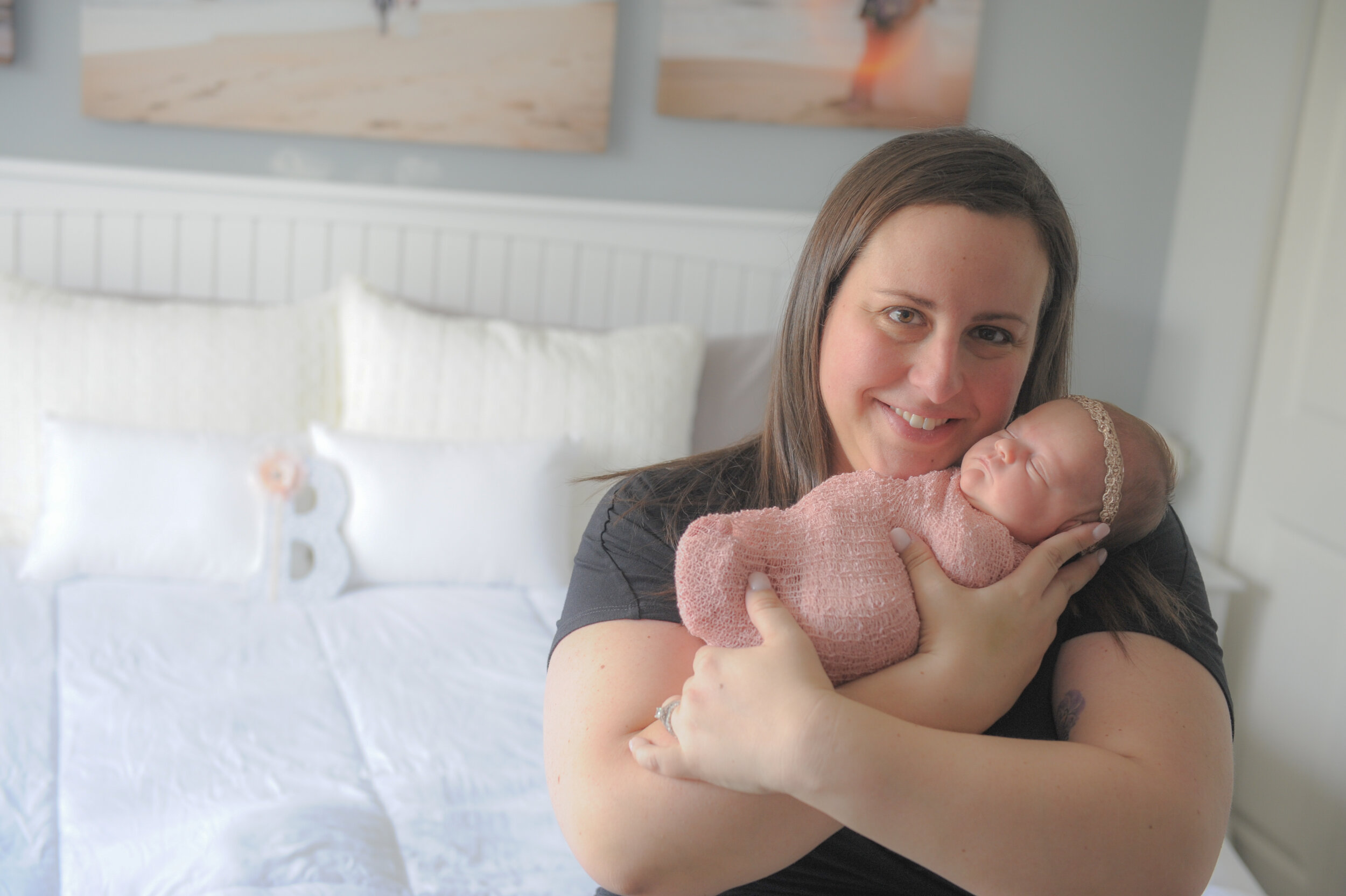Infertility, Parenting & Mental Health
Hi Friends,
Today’s topic is near and dear to my heart. As someone who walked through infertility and now is the mother of a 13-month-old, I think about the mental health intersections on the regular. The way we experience and process our emotions and feelings while trying to create, start, and manage a family may be different than what we’re used to, and I think it’s so important to talk about it all.
Why? I am a longtime advocate for mental health because quite simply, I believe “It’s okay not to be okay” - a motto from my friends over at Hope for the Day. As someone who has dealt with both depression and anxiety, I have learned that it’s critical to talk about the things I feel, to work through the challenges with someone I trust, to go to therapy, and to consider medications and/or take medication, as prescribed, to help manage the chemical imbalances in my brain.
ALSO - because going through IVF, pregnancy, postpartum and parenthood involves DRASTIC changes to not only your hormones, but your routine - including your ability to sleep regularly, take time for yourself, have time with your partner or friends, and to relax! Obviously, the changes and challenges are somewhat different for each of the phases above, but as someone who has journeyed through them all, I assure you that each part impacts your mental and emotional health, which is why vocalizing your thoughts, feelings and experiences is integral to maintaining your mental health.
Infertility + Mental Health
One of the major things I hear from clients struggling with infertility (and something I absolutely experienced myself) is the depression and frustration that comes with the inability to get pregnant naturally, especially after taking months worth of negative pregnancy tests. It can be so discouraging to feel like your body is unable to do the one thing you want it to, or the one thing it is meant to do, and this significantly impacts the mental health of both women trying to conceive and their partners. In my experience, this needs to be a conversation between partners, between patients and providers, and with your outside support system because it can become all consuming. Once infertility treatments begin, the medications and procedures increase hormones and with that, comes intense emotions. Hope, fear, despair - it’s cyclical and also detrimental to your health, your relationships, and quite honestly, your chances of becoming pregnant, if it’s not addressed. By acknowledging, sharing and working through the feelings and emotions that you experience along with infertility, you’re preparing yourself for a successful pregnancy. You will develop healthy coping mechanisms, great support networks, and increase your mental resilience.
Pregnancy + Mental Health is the next stage of the journey, and I want to address it in two parts. First, pregnancy after infertility can be scary, exhausting, and hard to enjoy for fear of loss or doubt of success. In my experience, pregnancy after infertility takes a little more time to adjust to and maybe, a little more support. For parents that got pregnant naturally, there’s still a season of change while the baby grows and develops in utero. Increasing hormones, along with fears and concerns can cause antenatal depression and/or anxiety. Preparing for something you’ve never done before is already hard, and doing it without a manual, with perhaps conflicting opinions or desires, and without a “test subject” means that entering parenthood (for the first or even fifth time) comes with so many unknowns. Talking through those feelings and fears, getting on the same page with your partner or your tribe, finding support - those are going to be the cornerstones of staying calm and centered during pregnancy and in to parenthood.
Once your baby arrives, you enter the Postpartum + Mental Health stage, which brings a whole new host of challenges and changes. Your time, energy, and love is completely consumed by this new little person, and it can feel challenging to remember your identity, your relationship, and your routine outside of parenthood. Mood shifts, increased levels of concern or worry, and increased tears are all things that new parents may experience - and a lot of that is completely normal. When you’re running on minimal sleep, a whole lot of adrenaline, processing new responsibilities and fears, hopes, and dreams, your ability to manage your emotions might seem impossible. That’s okay! However, if your shifts in emotion, worry, or anxiety feel significant, please visit Postpartum Support International for information and resources on postpartum depression and anxiety, and tools to find help in your area.
Finally, I want to talk a little bit about Parenthood + Mental Health. Becoming a parent means that your time is no longer really your own. Your responsibilities are likely larger and your lists longer, and self-care (including mental healthcare) often becomes less of a priority. This is completely understandable, but I’m here to tell you that the more you manage and care for your mental health, the calmer and more centered you’ll be and you’ll likely be a better parent to your little(s) too. I have found that personally, resuming therapy and finding time to de-stress has been instrumental in my ability to be present and active with my daughter.
My husband and I recently spoke about our experiences from Infertility to Parenthood in the context of Dual Diagnosis for Conversations Cafe, a monthly live podcast recording at Sip of Hope Coffee Bar featuring education and open forum dialogue on the intersections of Mental Health within our communities. You can listen to the conversation here!
As always, please please reach out to me if I can support you, point you in the right direction, or if you’d like to share your experiences here on my blog.
Warmly,
Amanda



